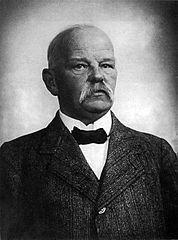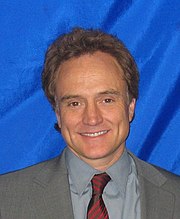Design
Design
Personality
Chart Properties
Your Cross represents the specific theme of your life. This cross embodies your unique potential & the lessons you're here to learn, providing a roadmap to fulfilling your life purpose.
We use the UTC birth time and date to do the calculations required to generate your Human Design chart.
Buy Tokens
Pay as you use, no expiry and no subscription required.Prompt Ideas
Get inspired with some epic prompt ideas.Robin Williams's Biography
Robin Williams Human Design. American actor who, after improv at L.A.’s Comedy Store, took his non-stop madness into the TV series “Mork and Mindy.” From 14 September 1978 he played Mork, a delightfully demented interplanetary visitor, for $15,000 a week. As a then unknown Juilliard drama student, he had made his first appearance as Mork in a one-shot stint on “Happy Days.” The character made such an immense impact with the public that it led to the winning series. In addition to TV, Williams has done many films, movies that were hilarious, touching, dramatic, histrionic; some duds and some memorable classics.
Robin grew up in an affluent family background, the only child of a wealthy Ford Motor executive. His mom was a fashion model, his first exposure to the entertainment world. He was a solitary child, able to comfortably play alone in his parents 30-room mansion with his 2,000 toy soldiers in a world of his own imagination. He attended high school in Marin County and graduated in 1969.
Williams studied politics and economics in Claremont Men’s College, a selective school in southern California. During freshman year, he took a class in improvisational theater and knew that he had discovered his destiny. Performing created an outlet for his creativity. When he announced his career choice to his executive father, his dad dryly suggested that he learn a backup skill, “like welding, just in case.” Trained in drama at Juilliard, he explored the max of his flamboyance as a stand-up comic, thinking on his feet with the challenge of improv. He earned extra pocket money as a street and theater mime.
With a love affair, Williams dropped out of Juilliard and drama classes. When the affair ended, he stayed in the Bay Area and started doing standup in small clubs. He played on his rapid-fire free associations and unpredictable leaps from accent to accent. He was wild and uncensored, the manic synapses of his brain exploding in all directions of absurdity. By 1978, he moved to Los Angeles where he beamed in from another planet as Mork.
Williams married dancer Valerie Velardi in 1978 and their son Zachary was born in 1982. The heady success of Mork over its first four years began to wane and as the show lost momentum, he began to worry that his success was a fluke, and turned to drugs and alcohol. His life was spinning out of control. Critics called his performances lightweight and wondered if he had the discipline or complexity to move into successful film performances. Though he was dazzling the nation with records, concerts, and TV appearances, his first film experience was a disastrous “Popeye,” in 1980. In 1982, his friend John Belushi died of a drug OD, a shock and a wake-up call. Privately, Williams has enjoyed his share of scandal. As if he needed extra energy, he reportedly snorted coke with John Belushi just before Belushi’s death, and in 1986 he was sued for $6.2 million by an ex-girlfriend who claimed he infected her with herpes; Williams filed a counter-suit claiming the charges were false and she was trying to extort money from him. The case was settled in 1992, and the terms were not disclosed.
He redeemed himself somewhat in a decent adaptation of “The World According to Garp,” 1982 but it was followed by mediocre comedies such as “The Survivors” 1983 and “Club Paradise,” 1986. He won an Oscar in 1987 for his performance as a wisecracking disc jockey in “Good Morning, Vietnam,” the first time that Hollywood took the risk of putting his brilliant improvisational gifts to good use. The film captured his manic energy brilliantly.
After the shellshock of fame, Williams career began to falter. In his private life, his marriage took several years to fold and was finally finished in 1988. He began to reappraise his life toward becoming a non-smoking vegetarian who jogs, exercises and reads. He made a second marriage, to Marsha Garces on 30 April 1989, a month after his divorce became final. Marsha had been a former nanny in 1984 for his first child, Zach, and the scandal sheets tried to paint her as a home-wrecker. Robin and Marsha formed their own production company, Blue Wolf, and she produced “Mrs. Doubtfire” in which she encouraged him to ham it up, and the result was a commercial blockbuster that further cemented his standing as Hollywood’s most popular funnyman. They had a daughter, Zelda, shortly after they married, and son Cody on 25 November 1991. His father’s health began to fail, an impetus for them to reach out in relating as friends and comrades. His dad died on 18 October 1989, just about when Williams’ life and work was coming into focus.
A new introspection and restraint began to show in subsequent films, and Williams began tackling serious roles with poise and maturity as well as children’s movies such as “Aladdin” and “Jumanji. He began to show a surprising range, tackling dramatic as well as comedic roles, and turning in stellar performances in “Dead Poets Society,” 1989, for which he earned his second Academy Award nomination for Best Actor, and “The Fisher King,” 1991. His work as the voice of the genie in Disney’s animated “Aladdin” helped fuel that film’s phenomenal, cross-generational success and he made “Flubber” in 1997. Williams achieved a critical pinnacle in his career by winning a 1998 Best Supporting Actor Oscar for his restrained performance as a South Boston therapist in Gus Van Sant’s 1997 charmer, “Good Will Hunting.”
The devoted family man doesn’t flaunt his wealth, but his home is his pride and joy. He owns two magnificent homes in the San Francisco area, drives pricey cars, bought himself a jet and is co-owner of a Bay Area restaurant. Forbes magazine has ranked him the nations top 40 and his fortune has been estimated at $150 million, not bad for a stand-up comedian who plays with talking green slime.
Through all of the scandals, the box office failures and accusations that he has lost his edge, Robin Williams has remained one of America’s most loved celebrities. Despite harsh criticism, people turned out in droves to see “Patch Adams,” 1998 and always seem willing to give the star the benefit of the doubt. In 2001, Williams is set to star in “The Interpreter,” in which he winds up mediating an international crisis. Pulling double duty as producer and star, he will then tackle the cyber-thriller “Rim” and the biopic “Damien of Molokai,” an account of the Belgian priest who tended to members of a Hawaiian leper colony in the late 1800s.
The actor’s publicist announced on 9 August 2006 that Williams had checked himself into rehabilitation the previous month for help with a recurring drinking problem.
On 21 March 2008 in San Francisco, California, his wife of 19 years, Marsha Garces Williams, filed for a divorce. They had been separated since the end of December 2007. In March 2009, Williams cancelled his touring show “Weapons of Mass Destruction.” The entertainer had experienced shortness of breath and was told he needed an aortic valve replacement. He underwent the surgery on 13 March 2009 at the Cleveland Clinic in Ohio.
On 11 August 2014 at around 11:55 a.m. PDT, Williams was found unconscious at his residence in Tiburon, California, and was pronounced dead at the scene at 12:02 p.m., apparently from suicide by hanging himself. According to his publicist, Williams was “battling severe depression” in the time before his death. In the media, police lieutenant Keith Boyd is quoted as: “Mr. Williams, at that time, was cool to the touch with rigor mortis present in his body”. This implies that his death happened many hours before discovery.
Link to Wikipedia biography
Link to Astrodienst forum archive
Robin Williams
Your Cross represents the specific theme of your life. This cross embodies your unique potential & the lessons you're here to learn, providing a roadmap to fulfilling your life purpose.
We use the UTC birth time and date to do the calculations required to generate your Human Design chart.
Prompt Ideas
Get inspired with some epic prompt ideas.

Princess of France Henriette
3/5 Emotional - Solar Plexus ProjectorGabriele Wohmann
6/3 Emotional - Solar Plexus Generator

Rudolf Jung
6/2 Emotional - Solar Plexus Manifesting GeneratorJean Cadéac d’Arbaud
5/1 Emotional - Solar Plexus Generator





